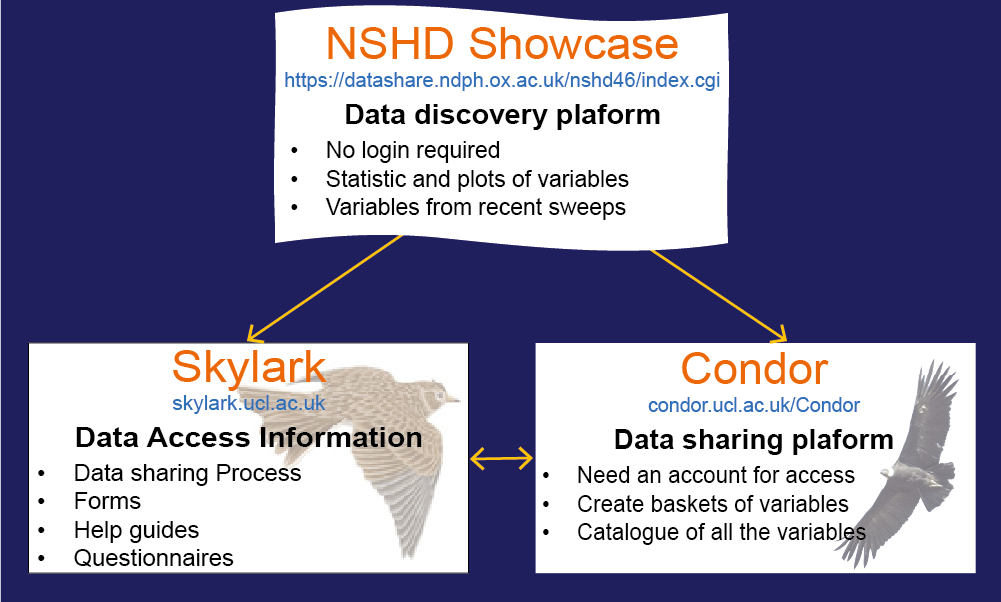Data Sharing
NSHD Data Archive
The MRC National Survey of Health and development (NSHD) has a data archive with over 35,000 variables collected over the lifetime of the study. The archive preserves data and meta-data (descriptions of the data) in electronic, paper, fiche, and, increasingly, image form, and includes biological samples.
Data Sharing in NSHD

There are 3 parts which make up the MRC National Survery of Health and Development data sharing infustructure.
NSHD Showcase
The Showcase is a data discovery platform. You can search for variables and see distribution plots, all without any login.
Condor
Condor is the data sharing platform. If you would like to request variables, then you will need to use Condor to build baskets. All users information and baskets have been migrated from the old system. If you are a new user then you will need to register.
Skylark
Skylark contains data access information. This site contains a copy of the questionnaires, topic information on the variables and all the forms you need to make a data application. It also includes help guides for the Showcase and for Condor.
Citing NSHD data using DOIs
The NSHD now has a set of persistent identifiers (DataCite DOIs, or just DOIs) that allow the tracking of research datasets as well as publications. It is important that all authors cite these DOIs in publications based on NSHD data.
Data Sharing
The LHA is committed to the core principles of the MRC with regard to data sharing. The LHA actively encourages the sharing of NSHD data with scientists for high quality research projects, to ensure that the scientific potential of the NSHD is maximised. Data sharing must be within the bounds of consent given previously by study members and meet rigorous MRC data security standards.
All proposals to use NSHD data must support and adhere to the core principles of data sharing with the MRC, namely:
- Ethical: The privacy of individuals and the dignity of communities must be protected, while simultaneously respecting the imperative to improve public health through the most productive use of data.
- Equitable: All proposals should recognise and balance the needs of researchers who generate and use data, other analysts who may want to reuse those data, and communities and funders who expect health benefits to arise from research.
- Efficient: Approaches should be proportionate and build on existing practice and reduce unnecessary duplication and competition.
Data sharing is dependent on the project being approved by the NSHD Data Sharing Committee, a data sharing agreement being in place between the UCL and the academic institution that employs the researcher, and LHA resources being available to meet the requests for data sharing.
